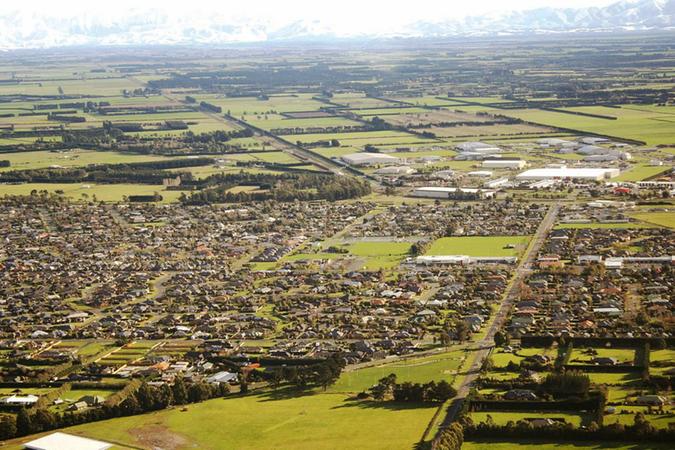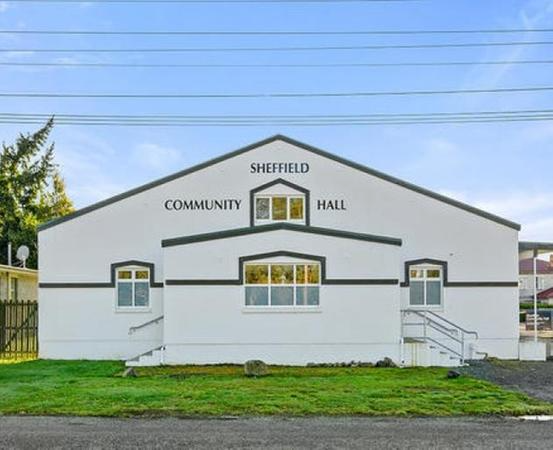
The new Selwyn District Council will have its first official meeting today since being sworn in last month - and a key item on the agenda is to decide how much they will get paid.
The Remuneration Authority has allocated $754,690 to be split among 10 councillors.
Mayor Lydia Gliddon’s $167,420 salary is set separately by the authority – a 5.9% increase from the $158,082 former mayor Sam Broughton was paid.
The salary pool for councillors has risen 26% from last term, who earned $58,613.
Today, councillors have three options to choose on how they want to split the $754,690.
The first would see deputy mayor Brendan Shefford get $90,000, finance and performance chair councillor Aaron McGlinchy get $80,000, and other councillors get $73,086.
Option two would see no bonus for McGlinchy, while each councillor would get $73,854.
Option three is all councillors, including Shefford, receive the same rate of $75,469.
Council has no control over how much the Remuneration Authority allocates for the salary pool, which is rates-funded.
Councillors will also decide whether to add an allowance of up to $4500 to install home security at their houses, which was added by the Remuneration Authority in June to allowances for elected members and would be rates-funded. Allowances include travel and some childcare costs.
Deep dives start
While this week marks the start of official meetings, councillors have already begun briefings on key considerations as part of the induction process.
At the first briefing last week, council staff highlighted the way growth in Selwyn has largely been out of council control due to Government legislation dictating what councils can zone and where.
This started in 2016 with the Housing Accord and Special Housing Areas Act, which enabled rural land to be subdivided outside normal planning rules.
“There were two areas that picked up this special pathway, one is Acland Park in Rolleston and parts of Faringdon,” council acting development and growth executive director Emma Larsen said during the briefing.
“It enabled about 1000 additional homes in Rolleston.”
Jump foward to 2020, and the Covid-19 Recovery (Fast-track Consenting) Act was introduced to assist the country’s recovery from the pandemic.
“It allowed some major housing projects to bypass normal RMA processes for faster delivery,” said Larsen.
Faringdon South West, Faringdon South East, and Faringdon Oval were all consented under this act, equating to about 2100 homes.
Also in 2020, there was a change to the Government’s National Policy Statement for Urban Development.
It required the council to consider any rezoning requests that would contribute to development capacity.
This resulted in about 16 private plan change requests.
Among those were the beginnings of the 2100-home Earlsbrook subdivision in Lincoln.
It was controversially approved through the District Plan review while under appeal by community advocacy group Lincoln Voice.
The process was a reason why Lincoln Voice committee members Denise Carrick, McGlinchy and Tracey Macleod decided to successfully stand for council.
In 2021, the Government brought in the Enabling Housing Supply Amendment Act, which forced the introduction of medium-density zoning in Rolleston, Lincoln and Prebbleton.
Across the three towns, 1922ha of land was intensified, and 716ha was rezoned from rural to medium-density.
In 2022, the Government introduced the National Policy Statement for Highly Productive Land.
“It made it much more difficult to rezone highly productive land, and it could only proceed if there is a need for development capacity.
“The gate was open for a period of time, and now it has been sort of shut in terms of rezoning rural land for residential development,” Larsen said.
Highly productive land meant a business park bid on the outskirts of Lincoln failed to get approved after an Environment Court process.
 Sheffield Hall is one of five underused community halls the council is planning to consult on over the next 12-18 months. Photo: Supplied
Community halls
Sheffield Hall is one of five underused community halls the council is planning to consult on over the next 12-18 months. Photo: Supplied
Community halls

Public consultation on five underutilised community halls is likely to happen in the next 12-18 months.
The consultation on Mead Hall, Tawera Hall, Sheffield Hall, Greenpark Hall and Greendale Hall were among 13 the council started assessing the future of in 2023.
“A community group is more likely to travel to a newer, warmer, or more suitable venue for their activity rather than a local hall,” council head of venues and events Catherine Parker said at the briefing.
Parker said for most of the halls, the cost of keeping them open was outweighing the revenue returned.
She said those five were chosen because there is interest in either the land next to the halls or the community groups to which the ownership could be transferred.
Once the future of the first five is decided, the council will work through the remaining eight.
Swimming success in Selwyn
Selwyn’s Learn to Swim is now one of the largest single-venue swimming programmes in the country.
There were 13,525 participants in the Selwyn Aquatic Centre programme in the 2024/25 financial year, with about 3300-3500 people a term.
“This is the largest single facility swim school in the South Island and pushing towards the largest in New Zealand; there are only one or two in Auckland pushing around the high 3000 mark,” head of sport and recreation James Richmond said at the briefing.
Richmond said Christchurch City Council has about 6000 participants across its six pools.
The programme brought in $1.93m of revenue and cost $1.61m to put on, largely due to parts of the programme being heavily subsidised.
Survey on Selwyn Awards
The council has launched a survey to get feedback on the Selwyn Awards.
The biennial awards were held in August, and councillors were briefed on it last week.
The event cost the council $316,102, of which $125,875 was recovered through sponsorship and ticket sales.
It was raised at the briefing that not all businesses, community groups and individuals felt they were eligible to enter or may not have been well represented at the event.
As a result, a short survey has been launched that asks questions about the development of award categories, eligibility criteria, judging process, and event production.
- All submissions are anonymous and must be completed by 5pm on November 28. To submit head to: https://shorturl.at/c4Dqo














